On November 21, 2024, the International Atomic Energy Agency (IAEA) board of governors, in Geneva, censured Iran for failing to fully cooperate with the agency. The resolution was sponsored by the E3 – Britain, France, and Germany – and also backed by the U.S. It expressed "profound concern that Iran has still not provided the necessary, full and unambiguous cooperation with the Agency and has not taken the essential and urgent actions" that would allow the IAEA "to provide assurance that Iran's nuclear program is exclusively peaceful."[1]
The resolution enraged Iranian regime officials, who called for accelerating Iran's uranium enrichment – some even demanded increasing of enrichment to 100% – and also called for installing additional centrifuges, along with threatening that Iran would leave the Non-Proliferation Treaty (NPT) (see MEMRI reports on this subject[2]) and produce nuclear weapons.
Indeed, the IAEA reported, on November 28, that Iran had announced its plans to inject uranium gas enriched to 5% into eight cascades of advanced IR-6 centrifuges that were recently installed at the Fordo facility. It also informed the IAEA about its plans to install additional centrifuges for enriching uranium at the Fordo and Natanz facilities.[3]
The following are some of Iranian officials' reactions to the IAEA resolution against Iran:
Iranian Foreign Minister Araghchi: "If The West Continues To Threaten To Renew All The U.N. Sanctions, It Is Reasonable To Assume That The Nuclear Discussion In Iran Will Move Towards Possessing [Nuclear] Weapons"
At a press conference in Lisbon on November 28, 2024, a week after the November 21 Geneva meeting of the E3 that concluded in the resolution, Iranian Foreign Minister Abbas Araghchi warned: "If the West continues to threaten to renew all the U.N. sanctions, it is reasonable to assume that the nuclear discussion in Iran will move towards possessing [nuclear] weapons." He added: "Iran had capabilities and knowledge to build nuclear weapons in the past, but this issue was not part of the country's security strategy." Explaining that "if the European countries in the [U.N.] Security Council renew the sanctions on Iran, all Iran's citizens will be convinced that this [peaceful nuclear doctrine of Iran] was mistaken. If this happens, I think that everyone [in Iran] will be convinced that we have gone down the wrong path [and that therefore] we need to change the path [towards building nuclear weapons]. I believe that if this snapback [of sanctions] is actualized, we will be facing a crisis."
Saying that he was not "optimistic" about the upcoming meeting of the IAEA board of governors and European countries in Geneva on November 29, Araghchi expressed his doubts about Iran's relationship with the Europeans, saying: "I am not sure whether Iran is talking with the correct side. It appears that the European countries, particularly Britain, Germany, and France, have chosen a policy of confrontation. After the last [November 21] board of governors' resolution, Iran has decided to activate thousands of centrifuges that are new and most advanced. The injection of gas into these machines has begun. This is the result of the pressure applied by [the three European countries.
"At the moment," he concluded, "we have no intention of increasing the level of uranium enrichment above 60%, and this is our decision for now. I would like to stress that we have chosen the line of cooperation in order to resolve this matter honorably."[4]
Majles National Security Committee Member Ahmad Bakhshayish Ardastani Calls For Producing Nuclear Weapons
On November 23, 2024, the IRGC published on its Telegram account statements by Majlis National Security Committee Member Ahmad Bakhshayish Ardastani in which he called on the Iranian regime to produce nuclear weapons and to withdraw from the NPT. He gave the example of North Korea, which he pointed out is not confronted by the West because it has nuclear weapons. The following is a translation of the main points of his statements:
"We must build an atomic bomb. Most [Iranian] citizens agree with the production of nuclear weapons. We must withdraw from the NPT at the same time as we increase [uranium] enrichment. If we build an atomic bomb, we will have maximum tension for six months. The West will not attack us when we build atomic bombs. The West does not mess with North Korea because it has atomic bombs. A large part of the Iranian people has come to the conclusion that our country definitely needs nuclear weapons. Iran must advance towards producing a nuclear bomb, because it is trapped enough in the boiling cauldron of the sanctions [against it] that the West can level no more against it, and it has nothing new in its pocket but repeated sanctions."[5]
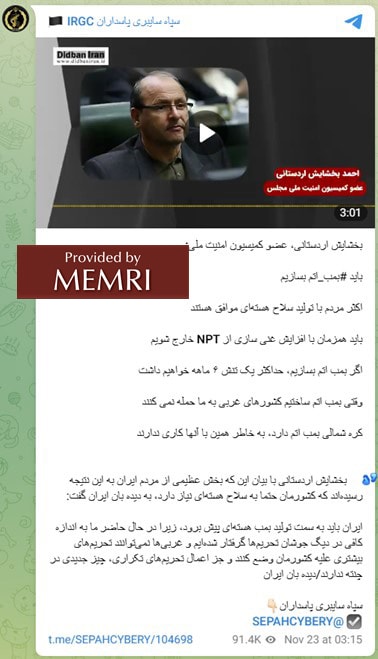
Khamenei's Representative in Qom Mohammad-Reza Hamed: We Request That Khamenei Reconsiders His Fatwa Banning The Production Of Nuclear Weapons
On Friday, November 22, 2024, Khamenei's representative and Friday imam in the Shiite holy city of Qom Mohammad-Reza Hamed called on Khamenei to reconsider his (non-existent) fatwa banning nuclear weapons. He explained that while Iran will not actually use a nuclear bomb, it would serve as a deterrent, particularly since its enemies have nuclear weapons and use them to threaten Iran. He said: "Things have changed… It will not be a weapon of mass destruction for us, but a means of protection for us."[6]
Iranian Daily Vatan-e-Emrooz: We Should Increase Our Uranium Enrichment To The Maximum Levels
On November 23, 2024, the Iranian daily Vatan-e-Emrooz, which is aligned with Iran's ideologues, published an article which called for Iran's uranium enrichment levels to be increased to the maximum (i.e. 100%). The following is a translation of the key points of the article:
"Currently, after this anti-Iranian measure by the IAEA Board of Governors that was initiated by the European troika, the atmosphere of pessimism in Iran has grown stronger, and it has had a [negative] influence on the process of cooperation which had increased following the visit of [IAEA Director General Rafael] Grossi…
"Iran today has approximately 185 kilograms of 60%-enriched uranium, and this subject was always a nightmare for the West… Now, the West must witness the continued enrichment of uranium past 60% and worry about a 'appropriate response' from Iran to the IAEA's anti-Iran measure… It appears that the most important technical measure Iran will take in response to the West's lack of goodwill and to the approval of this anti-Iran resolution, is the same thing that Tehran has announced to the West time and again and has warned against – that is, 'the installation of new centrifuges'…
"Although increasing the number of new-generation centrifuges can change the calculations on the Western side, Iran still has options that it has not even mentioned in the media, including the possibility of enriching uranium to the maximum level. Not only is such an action legal according to international law, but the possibility of increasing the level of uranium enrichment would send the West the message that Iran does not compromise with anybody when it comes to its national interests, and if Iran's nuclear technical project becomes politicized [by the West], then Tehran will also defend its technical capabilities.
"If the West aims to use political tools to stop Iran's technical advancement and to complicate our country's technological path, the Islamic Republic [of Iran] must also let the West know about its capabilities through using maximal nuclear power."[7]
Iran's Atomic Energy Organization Spokesman Behrouz Kamalvandi: Not Only Has Enrichment To 60% Not Stopped – Rather, We Are Obligated To Increase Enrichment Rates, And This Is Happening Gradually
Atomic Energy Organization of Iran spokesman Behrouz Kamalvandi said on November 23, 2024 that the Iranian regime has significantly increased its ability to enrich uranium and has installed thousands of centrifuges. The following is a translation of key points from his statement:
"Unfortunately, there has been a repeated mistake on the part of the Western countries, as a consequence of pressures and threats that do not lead them anywhere. There are two messages for the West regarding what has happened. First, every time that a decision is made [against Iran], it is accompanied by fewer countries, and many countries have expressed their opposition to this decision. Second, these pressures will have the opposite [of the desired] effect. This means another increase in our enrichment capabilities.
"We invited [IAEA Director General Rafael Grossi to visit Iran]. He visited the [Natanz and Fordow] facilities [which are] named after the martyr Dr. [Massoud] Ali-Mohammadi and the martyr engineer [Mostafa] Ahmadi Roshan. Our goal was double. First, to prepare the ground for interaction, since Grossi himself was interested in visiting Iran and visiting [our nuclear facilities]. Second, to present up close the capabilities that can be used in the event of a conflict. We showed him the advanced centrifuges.
"Immediately after the decision was made public, first by phone and then in writing, a list of actions to be carried out were given, and we began doing these. This included a significant increase of our enrichment capabilities. We are talking about thousands of centrifuges, not hundreds. These centrifuges have been installed and were ready for use. It was also mentioned [to Grossi during his visit] that in the interactive situation, the centrifuges can remain without [uranium] gas in them, but if [the West chooses] conflict, they will begin to operate.
"For us, [the IAEA's decision] has turned into an opportunity to continue research and development in the field of industrial enrichment. This field calls for many centrifuges, so that we can research enrichment using different methods. We have plans to develop and complete the infrastructure, and we have begun this. An explanation was given and we sent the planning questions to the IAEA. The rate of production of enriched products is also on our agenda.
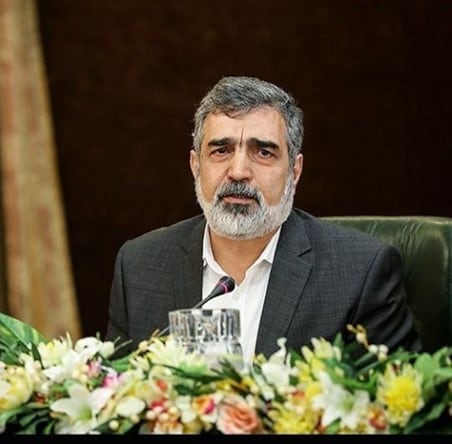
Atomic Energy Organization of Iran spokesman Behrouz Kamalvandi. Source: Tasnim News Agency (Iran), November 23, 2024.
"I wish to correct two points. First, [Grossi's] visit was by our invitation, and there was no intention to stop the enrichment of uranium to 60%, which some people view as stopping the enrichment of uranium. Not increasing our [enrichment] capabilities was a matter with conditions, and it was for a limited period of approximately one month, during which they [the West] needed to do things, and if they had done them then this would have been a basis for a solution to problems related to the safeguards.
"We did not stop our enrichment of uranium to 60%. The [IAEA's] inspectors were supposed to arrive immediately after the Board of Governors meeting and to measure our capabilities. This capability will remain the same for the duration of a month, without stopping the enrichment of uranium to 60%. Practically, we have [uranium] enrichment, but we converted it to less-enriched materials. Now, not only has enrichment [of uranium] not stopped, but we are in fact ordering an increase in [enrichment] rates, and this is happening gradually.
"The second point has to do with the places that the IAEA does not view as [nuclear] facilities, but rather says that they have been contaminated. These issues can be solved very easily, because they are not deviations, but rather simple problems to solve. We must say that first of all, we are talking about a location and not a facility. Second of all, the contamination can be everywhere, such that uranium can be extracted [even] from water. If there is political room and they [Europe and America] do not exploit this negatively, then this issue can be solved easily."[8]
Majles Energy Commission Member And Former Head Of Iran's Atomic Energy Organization Fereydoon Abbasi: We Should Enrich Uranium To Over 90%
In a November 20, 2024 interview on Channel 1 (Iran), Fereydoon Abbasi, who is the former chief of the Atomic Energy Organization of Iran and who currently serves on the Majles's energy commission, said that if European countries continue to fail in honoring their commitments, Iran should consider enriching uranium beyond 90% for small reactors that use highly-enriched fuel. He called for conducting high-level neutron calculations and measurements, sending a clear message to the United States that Iran will not back down from its policies. While claiming that Iran does not seek weapons of mass destruction, Abbasi emphasized the necessity of nuclear capabilities to advance in the space sector, including launching satellites and space shuttles. He also highlighted the strategic significance of developing small nuclear reactors for use in nuclear-powered naval vessels. Abbasi acknowledged that such actions might lead to new sanctions, but argued that Iran has little to lose, given its current accusations of providing missiles and UAVs to Russia.
In a November 25 interview with ISNA (Iran), Abbasi repeated his calls on the Iranian regime to increase uranium to higher levels. The following is a translation of the key points in his remarks:
"Iran has cooperated with the IAEA over the past 20 years, even beyond its obligations, and the time has come for us to move on to enriching [uranium] to higher levels, in order to improve the country's technical and nuclear knowhow…
"In the nuclear field in which we see that a decision has been issued against us, it must be believed that this process will continue so long as we do not begin [the operation of] the heavy water reactor in Arak, and so long as we do not extract plutonium for research purposes. So long as our scientists go to nuclear centers in Europe and do research for them, and so long as our youth and our scientists in Europe and in America are satisfied from a scientific perspective, we will not be able to defend our country.
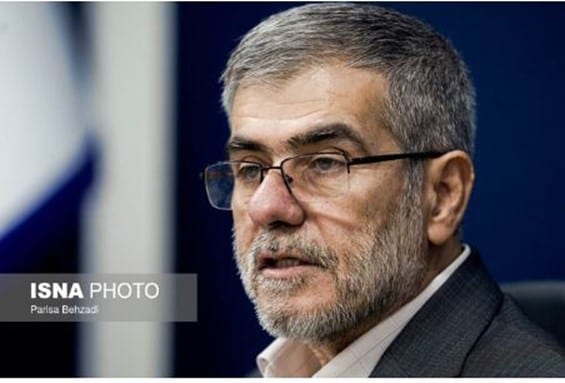
Former Atomic Energy Organization of Iran chief Fereydoon Abbasi, currently a member of the Majles's energy commission. Source: ISNA (Iran), November 25, 2024.
"If we have succeeded in different fields, and we succeeded in producing precision missiles, this is because of the precision of our calculations. Science and technology are connected to one another. This will certainly affect the lives of our citizens.
"The country's scientific and technical growth has an impact on our economy. We must not abandon the advancement of our country in this situation. We must take heed of the decisions of the [IAEA] Board of Governors… We must support the strategic operations law that was approved by the leader of the revolution [Khamenei] in the nuclear field [i.e. a law responding to decisions made by the Board of Governors censuring Iran that deals with increasing enrichment levels and installing advanced centrifuges]. Majles must even pass a stronger law regarding the technical issues that I mentioned."[9]
Deputy Foreign Minister For Legal And International Affairs Kazem Gharib Abadi: If The Trigger Mechanism Is Enacted, Iran Will Quit The NPT
Kazem Gharib Abadi, Iran's Deputy Foreign Minister for Legal and International Affairs, said on November 21, 2024 that if the West enacts the snapback sanctions against Iran, then it will leave the NPT and enter a state of conflict with the IAEA. The following is a translation of the key points of his statement:
"If you (the Europeans) do such a thing, naturally Iran will respond. Its response, alongside your decision, will bring the relations between Iran and the IAEA into a state of conflict. In fact, this would be to the detriment of those countries that ask the IAEA to oversee Iran's nuclear program. In fact, these countries did not listen to [IAEA Director General Rafael] Grossi's statement that their basis of operation and their goals are political. The Director General of the IAEA said that the decision [censuring Iran] is unnecessary."
"The Director General of the IAEA said that his visit had been positive and his interactions are advancing, but they [i.e. America and Europe] are saying that this is not the case, that the IAEA does not actually have access [to Iran's nuclear facilities], that the IAEA's problems with Iran have not been solved, and that it must therefore authorize a decision and solve the IAEA's problem. That is, they put themselves in the place of the IAEA's Director General.
"The IAEA is a group, like other international organizations, and at the end of the day it is subject to pressures from its members. Grossi's visit in Iran had been positive. He did not defend the decision [censuring Iran], and he issued the necessary warnings [to the West], and he discussed with several countries, but these countries [the European troika] are not interested in taking note of the IAEA's request.
"The analysts in this field believe that considering that there is less than a year before the expiration of [UN Security Council] Resolution 2231, they [the European troika] are attempting to accuse Iran of not fulfilling its obligations, and to for the first time ever activate the trigger mechanism that was planned in the framework of the nuclear deal, so that the international sanctions against us are reinstated.
"The content of the decision focuses on the two issues related to the safeguard, and it demands that Iran cooperates in order to solve these two issues, and it demands the IAEA Director General to file a report about undeclared nuclear materials within the coming four to seven months. This decision, with its draft, have no risk of [passing the nuclear issue] to the UN Security Council.
"If this decision is approved, it will not have many implications. This decision does not establish any relation between Iran's nuclear program and the Security Council. Europe wants to use it for the plan in another seven months in the May 2025 [Board of Governors] meeting, or in another four months in the February 2025 meeting.
"The snapback should not be viewed as harmful [only] to the Islamic Republic. We have clearly said to the West, and this has been said also to America, that the snapback cannot be held as a stick over the head of the Islamic Republic. The snapback is a threat also to them. If the trigger mechanism is enacted, Iran will quit the NPT.
"We cannot say with certainty whether the Board of Governors decision will lead to the trigger mechanism being enacted or not. We must not play in [unnecessarily] worrying the public. Iran cannot be satisfied with only one statement before the Board of Governors. We do not have fundamental problems or disagreements with the IAEA. I told Grossi when he came to Iran that he should not expect Iran to return to extra-provisional oversight. Iran will not return to being overseen beyond the safeguard."[10]
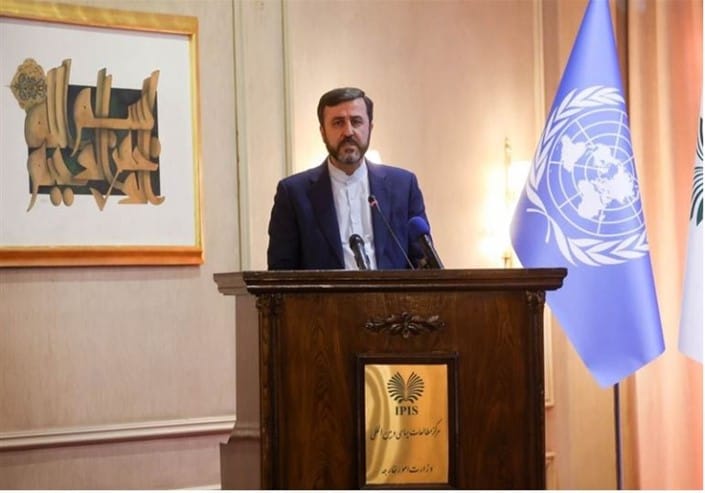
Iranian Deputy Foreign Minister for Legal and International Affairs Kazem Gharib Abadi. Source: Tasnim News Agency (Iran), November 21, 2024.
Khamenei's Advisor Ali Larijani: America Must Compensate Iran For The Damages Inflicted Following Its Withdrawal From The JCPOA
In a November 23, 2024 post on X, senior Khamenei advisor Ali Larijani called on the U.S. to make the compromises necessary to reach a new nuclear deal instead of issuing decisions censuring Iran in the IAEA Board of Governors. Below is a translation of his post on X:
"The correct view:
-
When it comes to the nuclear issue, America has undermined the previous agreement (the JCPOA) and withdrew from it, causing great damage to Iran.
-
Iran has begun enriching uranium, and it has increased the level to beyond 60%.
-
Both sides are in a new situation. If the new American officials say that they oppose only nuclear weapons, they must accept Iran's conditions for this and make the necessary compromises, including compensating Iran for its losses and so forth, so that a new agreement can be reached – instead of issuing unilateral decisions [censuring Iran] in the IAEA!"[11]
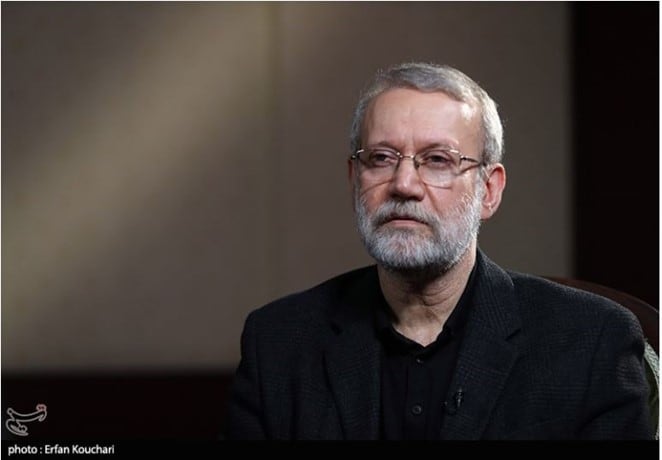
Senior Khamenei advisor Ali Larijani. Source: Tasnim News Agency (Iran), November 23, 2024.
Iran's Foreign Ministry And Atomic Energy Organization: The Chief Of The Islamic Atomic Energy Organization Has Ordered The Installation Of Advanced Centrifuges
On November 22, 2024, Iran's Ministry of Foreign Affairs and the Atomic Energy Organization of Iran published a joint statement responding to the IAEA Board of Governors decision censuring Iran. The statement said that Iran has begun installing advanced centrifuges, but will continue its cooperation with the IAEA. The following is a translation of they key points of the statement:
"Iran's policy is, in principle, always based on constructive interaction with the IAEA, in the framework of the rights and obligations outlined in the NPT… This political, unrealistic, and destructive outlook [of the European troika] disrupts the positive atmosphere that has been created, and the positive understandings that have resulted. This action, taken at a period of time when Iran and the IAEA were on the path of constructive interaction, has again proven that the three European countries and America are not in any way honest in their demands to defend the IAEA's credibility, and Iran's nuclear issue is just an excuse for advancing their illegitimate goals.
"Iran's authorities have in the past declared at various levels that Iran will respond to any measure taken against and to any exploitation of the Board of Governors for the purposes of advancing illegitimate and political goals. The coordinates of Iran's possible response have already been reported to the IAEA Director General. In this context, the chief of the Atomic Energy Organization of Iran has issued an order to take effective measures, including mass activation of new and advanced centrifuges of various types…
"Nevertheless, the technical cooperation with the IAEA will continue as it was in the past. Iran is still prepared to have a constructive interaction with relevant bodies on the basis of international legal principles and standards, and the principled policy of defending the rights and interests of the Iranian nation, and of developing its nuclear program for peaceful purposes will continue with seriousness."[12]
Hassan Kashkavi, Member Of Majles National Security And Foreign Policy Committee: The West Is Looking For Excuses To Activate The Trigger Mechanism
Hassan Kashkavi, a member of the Majles's National Security and Foreign Policy Committee, said in a November 23, 2024 radio interview that the West is interested in activating the trigger mechanism against Iran, and that Iran will respond to any Western measure. The following is a translation of the key points of his interview:
"Iran's nuclear future is determined by the IAEA's actions. Iran's hands are not tied in this context. The phrasing of the decision states that a report must be issued to the IAEA until March, clarifying the degree to which Iran cooperates, and in a certain way this decision has been postponed for the future. The main disagreement is about October 2025, when the nuclear deal will expire automatically, and the only tool they will have will be the trigger mechanism, and they are looking for excuses from the IAEA to activate it. This clause in the decision can become a potential cause for a hypothetical unfair [IAEA] report activating the trigger mechanism, and all the sanctions will be reinstated.
"Iran is fully prepared to solve the lack of clarity, and it will cooperate as necessary. They know that Iran has the necessary capability to continue with its [nuclear] technology, and they can decide whether they want to continue their hostility or have an interaction with Iran. The strategic plan is clear, and if there is a need for a new plan, it will take shape in accordance with Iran's strategic plan."[13]
[1] Iranprimer.usip.org/blog/2024/nov/22/iaea-board-censures-iran-over-nuclear-program, November 22, 2024; Editorials.voa.gov/a/iaea-censures-iran-over-its-continued-lack-of-cooperation/7877639.html, November 26, 2024.
[2] See for example MEMRI Inquiry and Analysis No. 1784, In Advance Of Revival Of U.S.-Iran Nuclear Talks, Iranian Calls For Iran To Possess Nuclear Weapons Are Again Heard, September 5, 2024; Inquiry and Analysis No. 1761, Senior Iranian Regime Officials Warn Of Iran's Coming Nuclear Breakout, April 25, 2024; Inquiry and Analysis No. 1701, Iranian Supreme Leader Ali Khamenei: 'If It Were Not An Islamic Principle, And If We Had The Will To Build Nuclear Weapons, We Would Do So – Even The Enemies Know That They Cannot Stop Us'; MEMRI: The Fatwa Banning Nuclear Weapons That Is Attributed To Khamenei Does Not Exist, June 26, 2023.
[3] Tasnim News Agency (Iran), November 28, 2024.
[6] Tabnak.ir, November 22, 2024.
[7] Vatan-e-Emrooz, November 23, 2024.
[8] Tasnim News Agency (Iran), November 23, 2024.
[9] ISNA (Iran), November 25, 2024.
[10] Tasnim News Agency (Iran), November 21, 2024.
[11] Tasnim News Agency (Iran), November 23, 2024.
[12] Tasnim News Agency (Iran), November 22, 2024.
[13] Tasnim News Agency (Iran), November 23, 2024.




